
The Hidden Gem of the Arabian Gulf: Musandam Peninsula
Nestled in the northern tip of Oman, the Musandam Peninsula is a breathtaking destination that offers a unique blend of rugged mountains, crystal-clear waters, and rich marine life. Often referred to as the 'Norway of Arabia,' this picturesque region is renowned for its dramatic fjords, serene beaches, and tranquil fishing villages. One of the main attractions in Musandam is the stunning Khasab, the capital of the region. Known for its historic forts and vibrant souks, Khasab provides a glimpse into the traditional Omani lifestyle. The Khasab Fort, with its panoramic views and fascinating exhibits, is a must-visit for history enthusiasts. The bustling local markets are perfect for picking up unique souvenirs and experiencing the local culture. For adventure seekers, the Musandam Peninsula offers an array of exciting activities. From dhow cruises that navigate through the majestic fjords to snorkeling and diving in the rich marine ecosystems, there is something for everyone. The clear waters are home to an abundance of sea life, including dolphins, which are often seen playing in the wake of boats. Nature lovers will be captivated by the diverse landscapes of Musandam. The rugged mountains and remote villages provide excellent opportunities for hiking and trekking. The peninsula's secluded beaches and coves are ideal for those looking to relax and unwind in a serene setting. Whether you're exploring the underwater world or hiking through the mountains, the natural beauty of Musandam is sure to leave a lasting impression.
Local tips in Musandam Peninsula
- Carry local currency (Omani Rial) as some remote areas may not accept credit cards.
- Best time to visit is between October and April when the weather is cooler and more pleasant.
- Consider taking a guided dhow cruise to fully experience the stunning fjords and spot dolphins.
- Wear comfortable clothing and sturdy shoes if planning to hike or trek in the mountains.
- Don't forget your snorkeling gear to explore the rich marine life in the clear waters.
The Hidden Gem of the Arabian Gulf: Musandam Peninsula
Nestled in the northern tip of Oman, the Musandam Peninsula is a breathtaking destination that offers a unique blend of rugged mountains, crystal-clear waters, and rich marine life. Often referred to as the 'Norway of Arabia,' this picturesque region is renowned for its dramatic fjords, serene beaches, and tranquil fishing villages. One of the main attractions in Musandam is the stunning Khasab, the capital of the region. Known for its historic forts and vibrant souks, Khasab provides a glimpse into the traditional Omani lifestyle. The Khasab Fort, with its panoramic views and fascinating exhibits, is a must-visit for history enthusiasts. The bustling local markets are perfect for picking up unique souvenirs and experiencing the local culture. For adventure seekers, the Musandam Peninsula offers an array of exciting activities. From dhow cruises that navigate through the majestic fjords to snorkeling and diving in the rich marine ecosystems, there is something for everyone. The clear waters are home to an abundance of sea life, including dolphins, which are often seen playing in the wake of boats. Nature lovers will be captivated by the diverse landscapes of Musandam. The rugged mountains and remote villages provide excellent opportunities for hiking and trekking. The peninsula's secluded beaches and coves are ideal for those looking to relax and unwind in a serene setting. Whether you're exploring the underwater world or hiking through the mountains, the natural beauty of Musandam is sure to leave a lasting impression.
When is the best time to go to Musandam Peninsula?
Iconic landmarks you can’t miss
Khasab Port
Discover the beauty of Khasab Port, where stunning fjords meet rich Omani culture in a unique maritime experience.
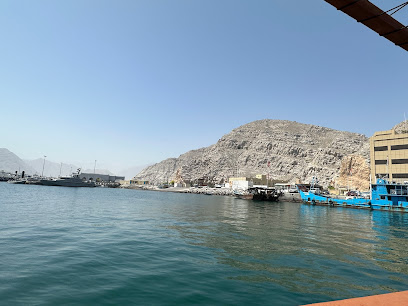
Atana Musandam Resort
Experience the luxurious Atana Musandam Resort in Khasab, Oman, where stunning views and authentic Omani hospitality await you.

Khasab Castle
Explore the captivating Khasab Castle, a historical fortress in Oman, where rich heritage meets stunning landscapes and a glimpse into Omani culture.
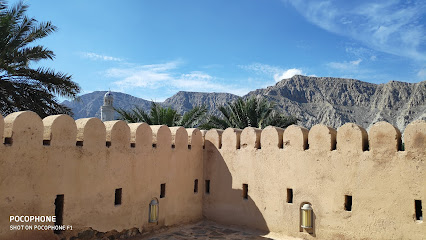
Khor Najd
Explore Khor Najd, a breathtaking oasis in Musandam, Oman, where rugged cliffs meet tranquil waters, offering an unforgettable escape into nature's beauty.
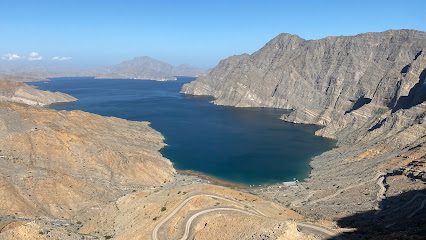
Ahlam Musandam Tours, Khasab
Discover the pristine waters and breathtaking landscapes of the Musandam Peninsula with Ahlam Musandam Tours, your premier boat tour agency in Khasab.
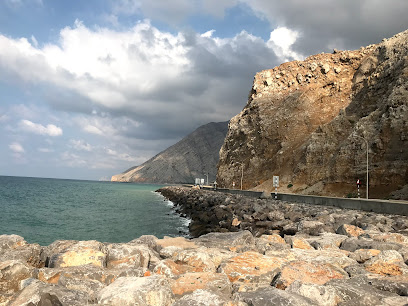
Diwan Al Amir
Experience luxury and Omani hospitality at Diwan Al Amir, the ideal hotel in Khasab for exploring the stunning Musandam Peninsula.
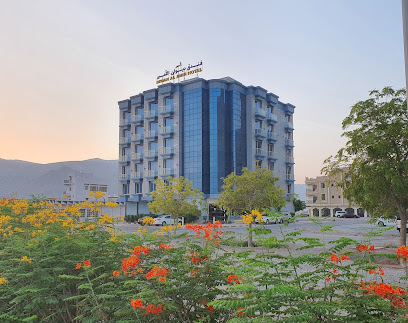
DOLPHIN KHASAB TOURS
Discover the beauty of Oman’s coastline with Dolphin Khasab Tours, offering unforgettable dolphin watching and exciting water adventures in the Musandam Peninsula.
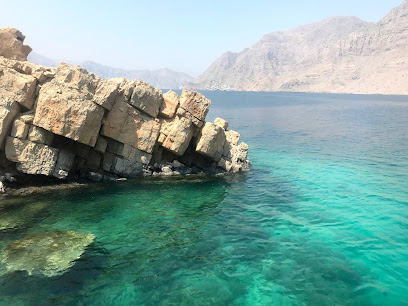
Bassa Beach | شاطئ بصه
Experience the breathtaking beauty and tranquility of Bassa Beach in Khasab, Oman – a perfect escape for relaxation and adventure.
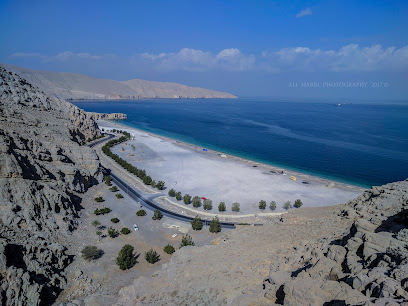
Bukha Fort
Discover Bukha Fort, a historical gem in Oman offering stunning views and a glimpse into the region's rich cultural heritage.
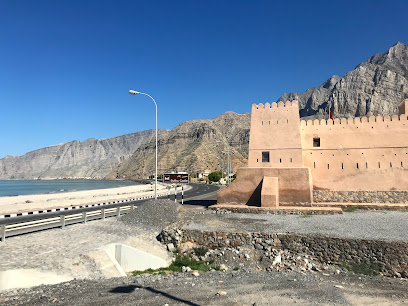
Bassa Beach
Discover the tranquil beauty of Bassa Beach, a hidden gem on the Omani coastline, perfect for relaxation and adventure amidst stunning landscapes.
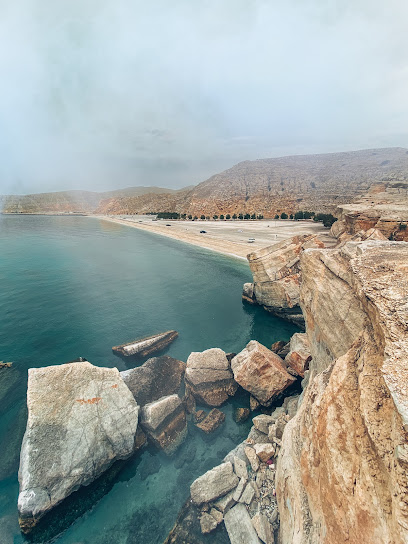
Khasab Sea Tours
Discover the stunning fjords and rich marine life of Oman with Khasab Sea Tours, your gateway to unforgettable boat adventures.
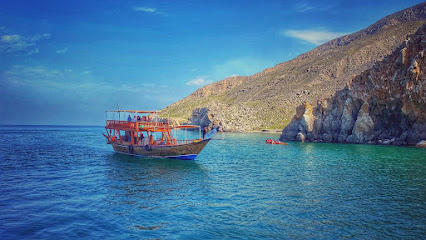
The Dolphin Travel & Tourism
Explore Khasab's stunning fjords and vibrant marine life with Dolphin Travel & Tourism, the ultimate adventure hub in Oman.
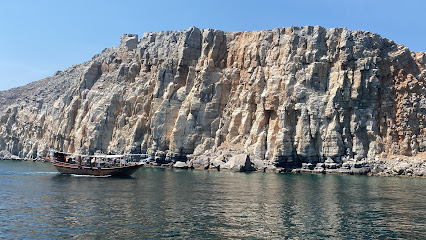
Dhow Khasab Tours
Discover the breathtaking landscapes and rich marine life of Musandam with Dhow Khasab Tours, your gateway to unforgettable Omani adventures.
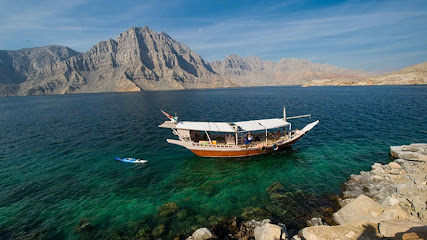
Telegraph Island
Experience the serene beauty and rich history of Telegraph Island, a hidden gem in the Arabian Sea, perfect for adventure and relaxation.
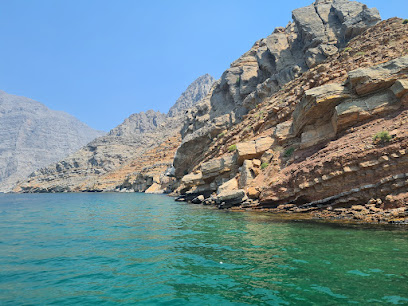
Secret beach
Experience the serene beauty of Secret Beach, a hidden gem perfect for relaxation and snorkeling adventures in Oman.
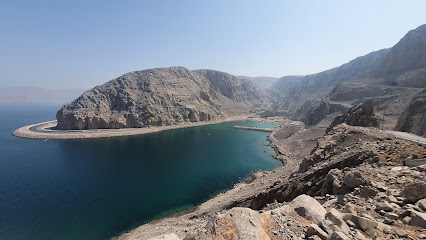
Unmissable attractions to see
Musandam Oman
Discover the breathtaking fjords and rich culture of Musandam, Oman – a hidden gem for nature lovers and adventure seekers.
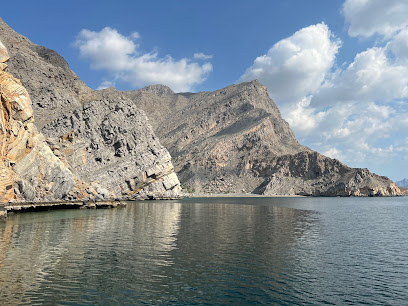
Bassa Beach | شاطئ بصه
Explore Bassa Beach in Khasab for stunning views, soft sands, and a tranquil escape into nature's beauty in Oman.
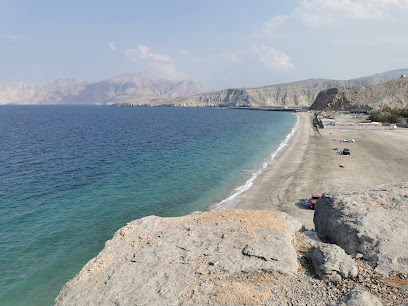
Bukha Fort
Explore the rich heritage of Oman at Bukha Fort, an architectural marvel that offers stunning views and a glimpse into the past.
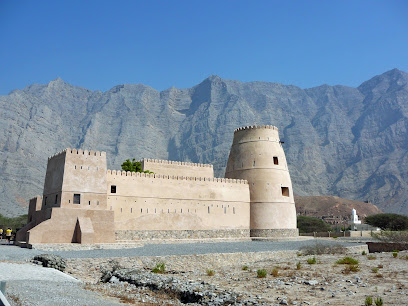
Secret beach
Experience the breathtaking beauty and tranquility of Secret Beach in Oman, a hidden paradise perfect for relaxation and exploration.
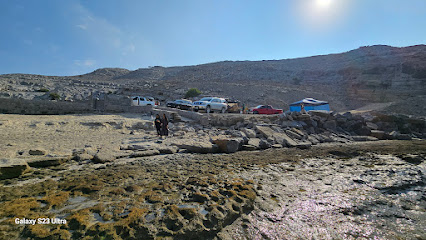
Bokha Beach
Experience the tranquil beauty and vibrant marine life at Bokha Beach, a hidden gem along Oman’s stunning coastline.
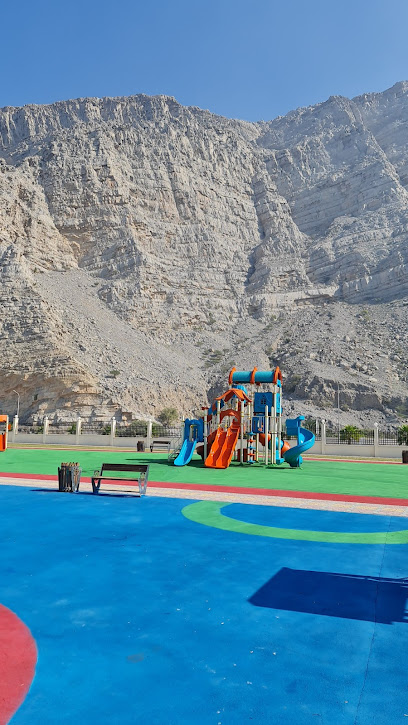
Hana View Point
Discover Hana View Point, where breathtaking vistas of Khasab's mountains and waters create an unforgettable natural escape for all travelers.
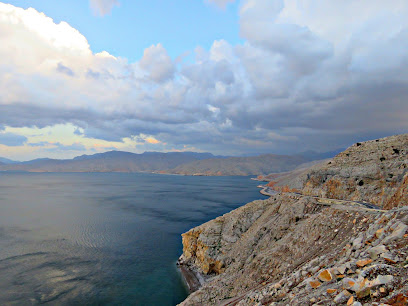
جزيرة التلغراف
Discover the serene beauty of Al Tlgraf Island, a hidden paradise in Oman with stunning beaches and rich natural heritage perfect for adventure seekers.
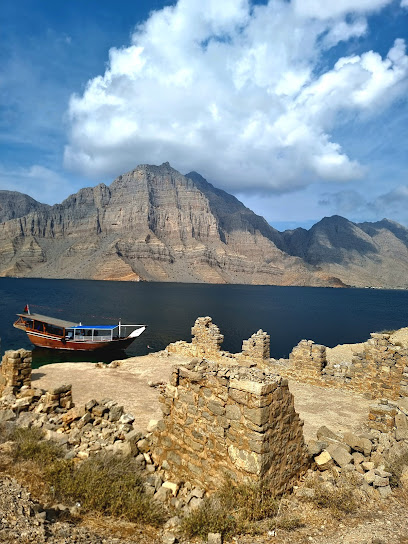
Rock Carving
Experience the ancient rock carvings of Qadah, Oman - a captivating journey into history amidst stunning natural beauty.
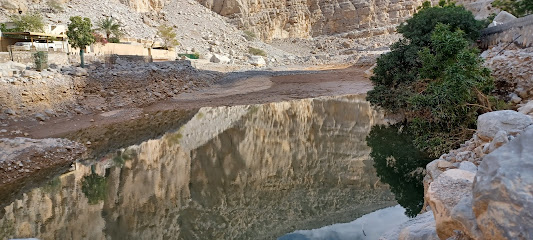
Musandam Zip Line
Experience the thrill of the Musandam Zip Line, soaring over breathtaking landscapes in Khasab, Oman, for an adventure of a lifetime.
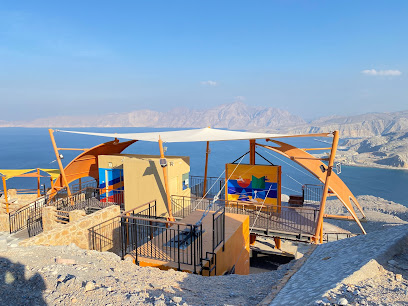
Cliff View Point
Discover the stunning views and tranquil ambiance at Cliff View Point, a must-see destination in Khasab, Oman, perfect for nature lovers and photographers.
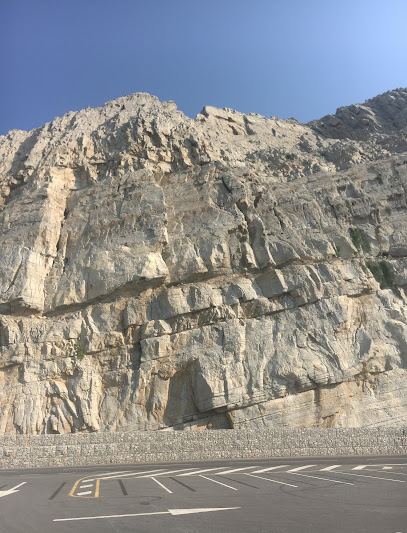
DUNE BEACH
Explore Dune Beach, a stunning coastal paradise on Khasab Coastal Road, where pristine sands meet crystal-clear waters for a perfect getaway.
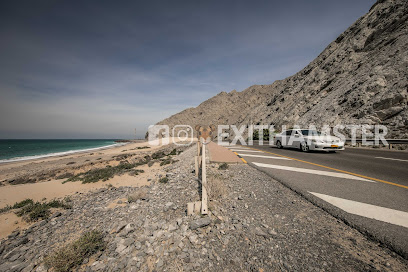
اطلالة شاطئ بصة
Experience the breathtaking views at Alila Beach Lookout in Khasab, Oman - a perfect blend of nature's beauty and serenity, ideal for tourists.
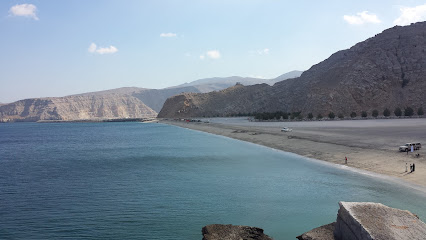
Echo point
Experience the breathtaking beauty and unique acoustics of Echo Point, a must-visit tourist attraction in Oman.
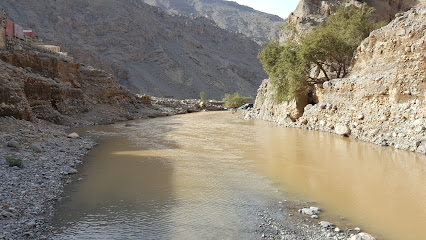
View Point Khor Najd
Explore the stunning vistas of Khor Najd in Khasab, Oman, a breathtaking viewpoint that captures the essence of Oman's natural beauty.
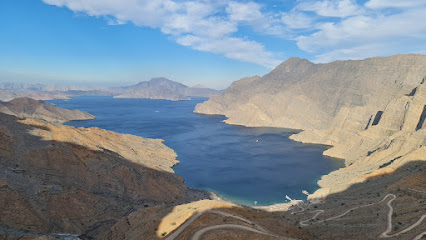
Durar Kumzar Tours (Musandam Khasab Tour Operation)
Explore the stunning fjords and vibrant marine life of Musandam with Durar Kumzar Tours, your gateway to unforgettable adventures in Oman.
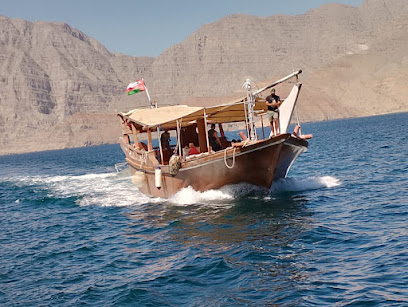
Essential places to dine
Aroos Musandam Restaurant
Discover authentic Omani cuisine at Aroos Musandam Restaurant in Khasab - where every dish tells a story.
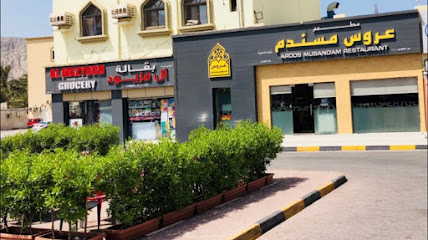
Al Shamalia Grill & Restaurant
Experience authentic Omani flavors at Al Shamalia Grill & Restaurant in Khasab, where tradition meets hospitality in every dish.
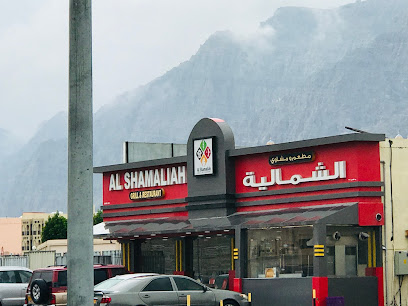
Amjad Restaurant.
Discover the authentic taste of Oman at Amjad Restaurant in Khasab—where tradition meets flavor in every dish.
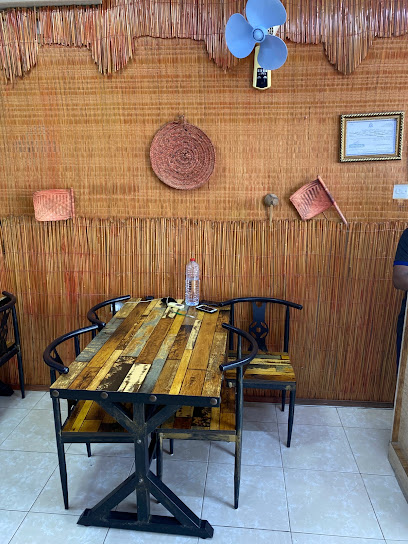
KHASAB CASTLE (Old Name: Wadi Qada Restaurant)
Discover Khasab Castle: A culinary gem in Oman offering fresh seafood and authentic local flavors amidst stunning scenery.
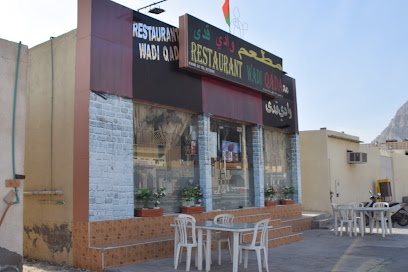
Fanr Musandam Turkish Restaurant
Experience authentic Turkish cuisine at Fanr Musandam Restaurant in Khasab, Oman—where every meal tells a delicious story.
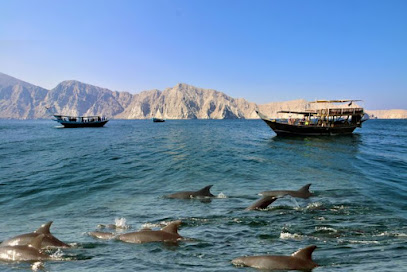
Sada musandam cafeteria
Experience authentic Omani flavors at Sada Musandam Cafeteria in Khasab—where fast food meets local tradition.
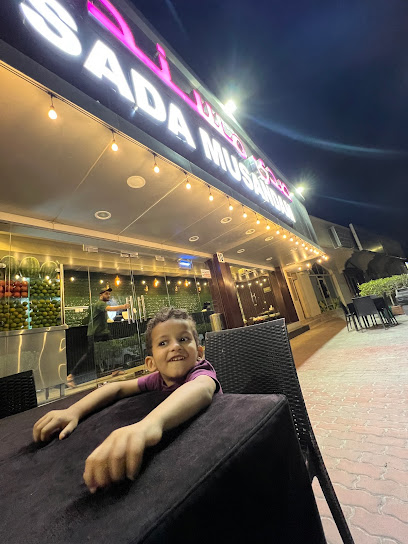
Yemen Village Restaurant
Discover the rich flavors of Yemen at Yemen Village Restaurant in Khasab—where tradition meets taste in every dish.
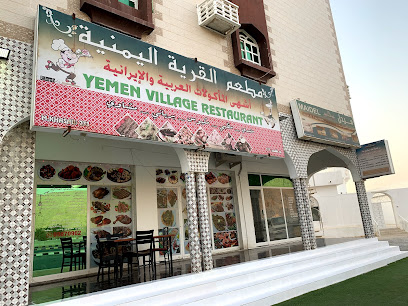
Bassa Beach Restaurant
Experience exquisite dining at Bassa Beach Restaurant in Khasab, where stunning ocean views meet delicious cuisine for an unforgettable meal.
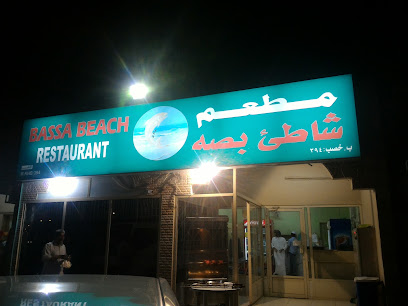
مشاوي الأسماك واللحومGrills Fish and Meat
Discover authentic Omani flavors at Grills Fish and Meat in Khasab – where every meal is a celebration of local cuisine.
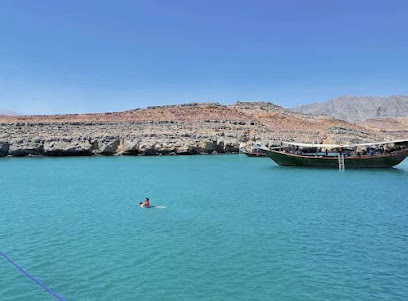
Dhabi Al Yemen Restaurant
Experience authentic Yemeni flavors at Dhabi Al Yemen Restaurant in Khasab - A culinary gem that brings the heart of Yemen to your plate.
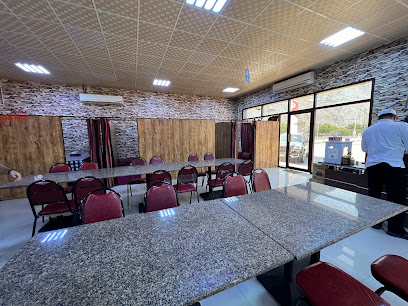
Pakistani Restaurant
Experience authentic Pakistani cuisine in Khasab's vibrant New Souk Area; a culinary delight for every traveler.
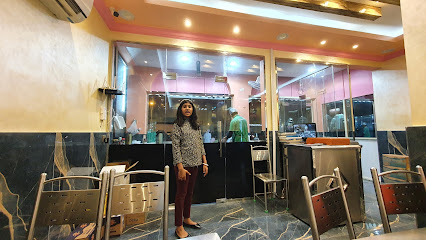
MAZAHBI AL YEMAN
Experience authentic Yemeni cuisine at Mazahbi Al Yeman in Khasab - where tradition meets flavor.
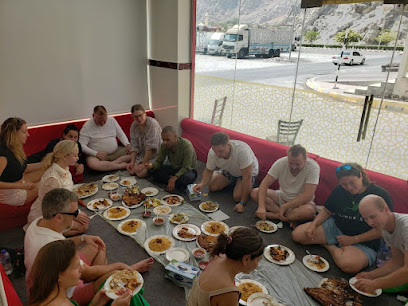
MURTFAT AL HAJER AL GHARBI TRADING & CONT.CO. ( MUSTHAFA HOTEL)
Discover authentic Omani cuisine at Musthafa Hotel in Khasab - where every meal tells a story.
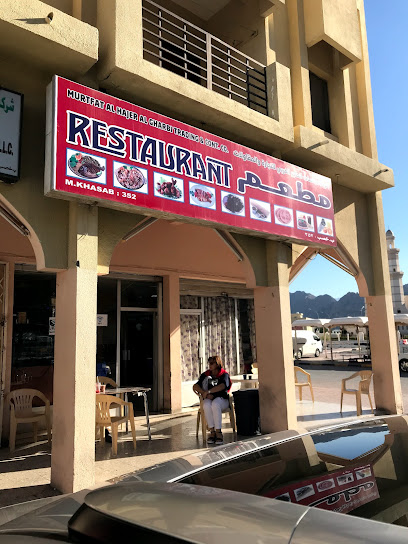
Al Mawra Restaurant
Experience authentic Middle Eastern cuisine at Al Mawra Restaurant in Khasab, where flavors meet stunning coastal views.
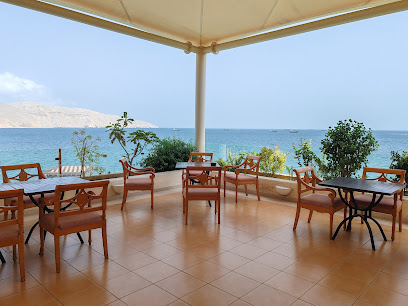
Nihmath Hotel
Experience authentic Omani flavors at Nihmath Hotel - A culinary gem in Khasab offering exquisite dining with stunning views.

Markets, malls and hidden boutiques
LuLu Hypermarket - Khasab
Experience the ultimate shopping destination at LuLu Hypermarket in Khasab, where local flavors meet international brands for an unforgettable retail adventure.
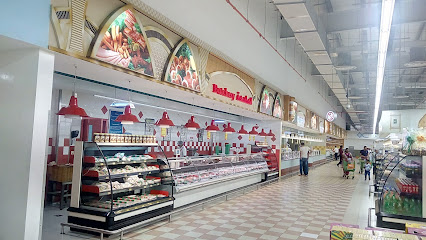
Bin Khammas Grocery Shop
Discover the local flavors and vibrant culture at Bin Khammas Grocery Shop in Khasab, Oman - your ultimate supermarket experience.
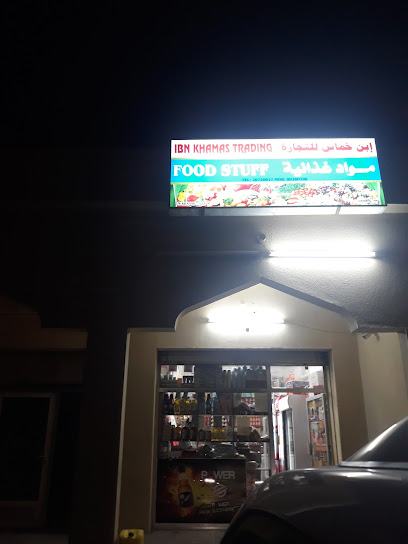
Hilal Musandam
Explore the essence of Omani culture through unique fashion at Hilal Musandam, a must-visit clothing store in Khasab.
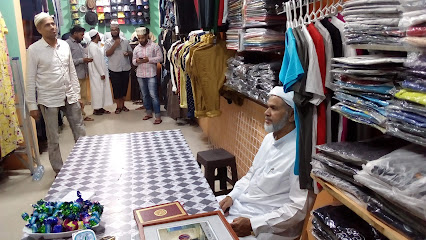
Athar Musandam
Discover the latest gadgets and electronics at Athar Musandam in Khasab, Oman, your destination for cutting-edge technology.
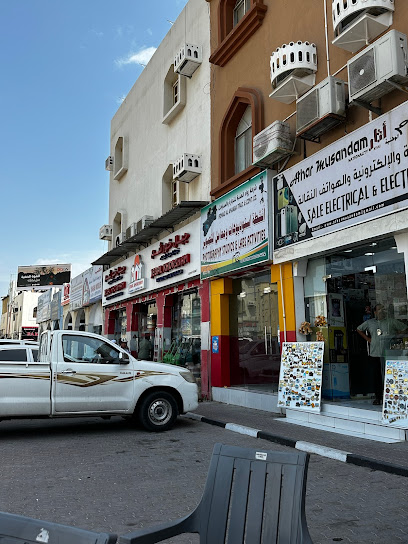
Zaree khasab
Explore Zaree Khasab for unique Omani gifts and handicrafts that embody the rich culture and tradition of Oman, perfect for every traveler.
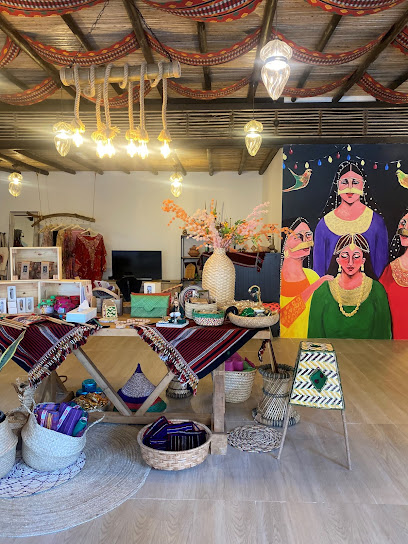
مشاريع الامراء التجارية للعسل والمنتجات العضوية ، خصب
Explore the rich flavors of organic honey and artisanal products at Princes Enterprises in Khasab, Oman – a unique cultural experience awaits!

MUSANDAM MOBILES
Explore Khasab with confidence by visiting Musandam Mobiles, your go-to cell phone store for all your mobile needs in Oman.
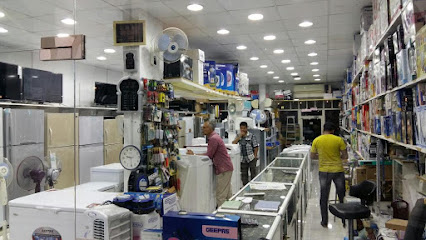
Zaree Khasab Souvenirs Shop
Explore the culturally rich Zaree Khasab Souvenirs Shop for unique Omani crafts and memorable gifts that reflect the essence of Khasab.
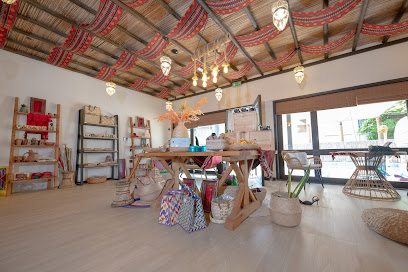
Khaleejmokhi Trading
Explore Khaleejmokhi Trading Mall in Khasab for a unique shopping experience blending local culture with modern retail.
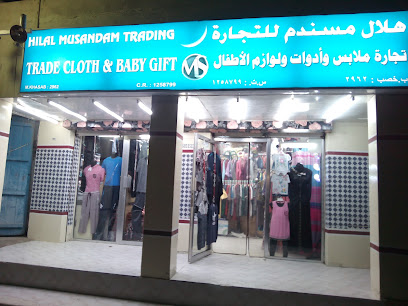
رؤوس الجبال للعسل والنحل
Experience the sweet essence of Oman at the Honey and Beeheads Store in Khasab, offering an array of delicious honey products and local specialties.
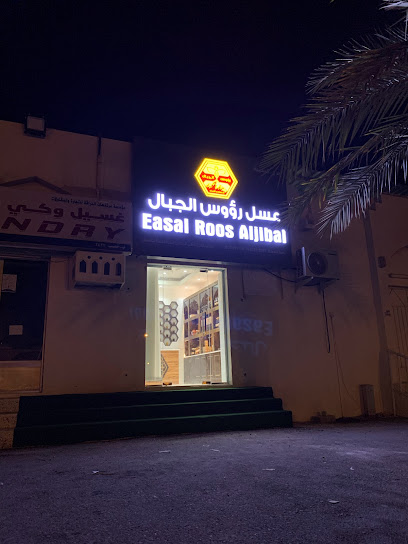
Marsa Khasab trading
Explore unique fashion finds at Marsa Khasab Trading in Khasab, Oman, where local culture meets contemporary style for an unforgettable shopping experience.
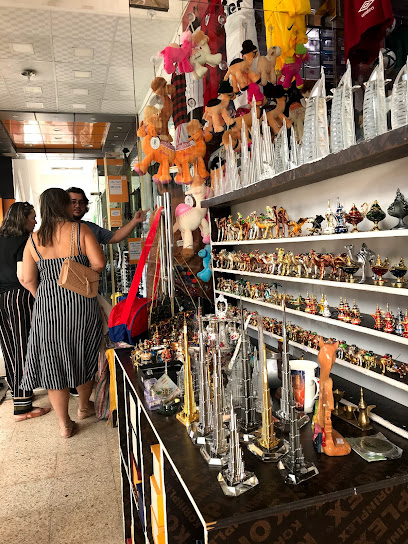
Alaa Eldin International Projects
Explore the fusion of cannabis culture and gourmet coffee at Alaa Eldin International Projects in Khasab, Oman – a must-visit for culinary enthusiasts.
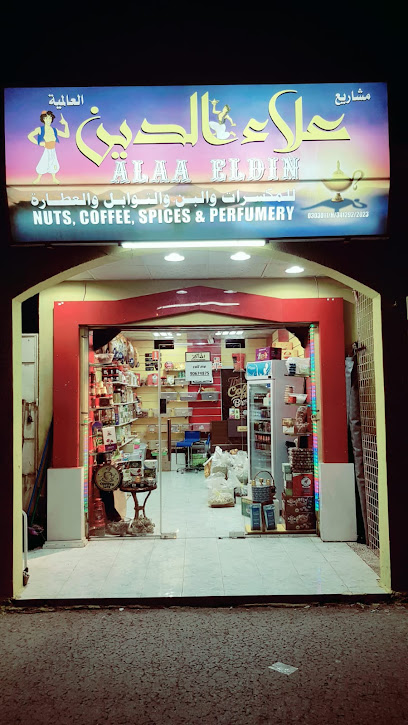
Musandam Heritage Village
Discover unique heritage items at Musandam Heritage Village, a gem in Khasab, perfect for souvenirs and local culture.
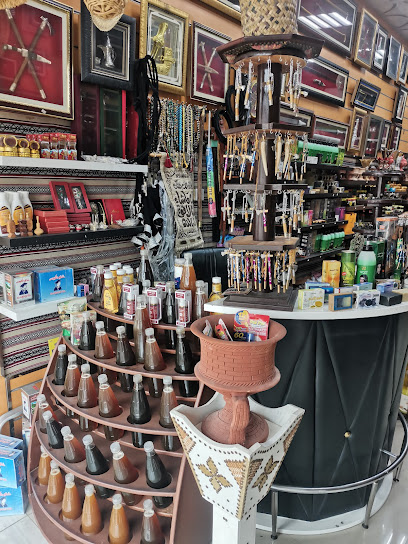
Lulu Roundbot
Discover Lulu Roundbot, Khasab's premier shopping mall, offering a diverse retail experience, delightful dining, and family-friendly entertainment.
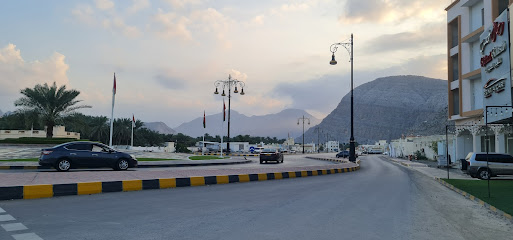
BARIQ MUSANDAM TRADING
Explore Bariq Musandam Trading for unique souvenirs and local crafts that reflect the vibrant culture of Khasab, Oman.
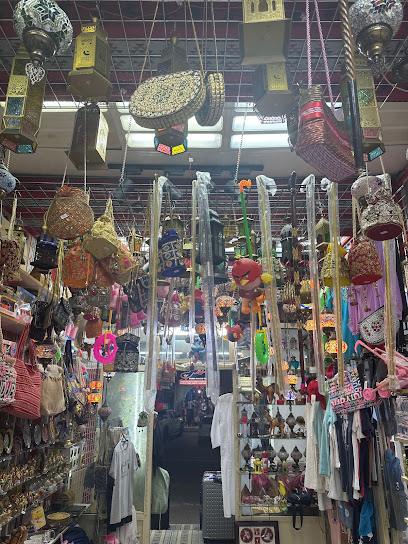
Essential bars & hidden hideouts
Aroos Musandam Restaurant
Discover the authentic flavors of Omani cuisine at Aroos Musandam Restaurant in Khasab, where tradition meets taste in a warm atmosphere.
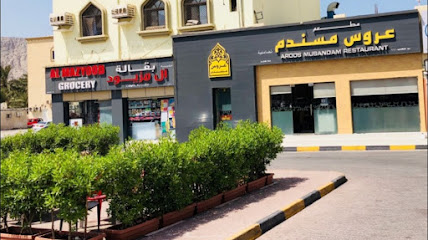
Al Shamalia Grill & Restaurant
Discover the best of Omani cuisine at Al Shamalia Grill & Restaurant in Khasab, where traditional flavors and hospitality meet.
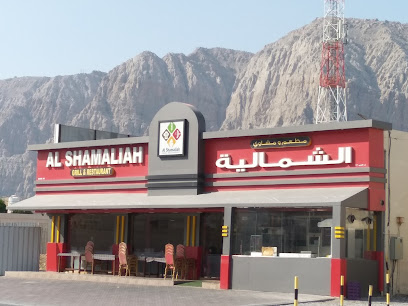
Amjad Restaurant.
Experience authentic Omani cuisine at Amjad Restaurant in Khasab, where local flavors and warm hospitality create unforgettable dining moments.
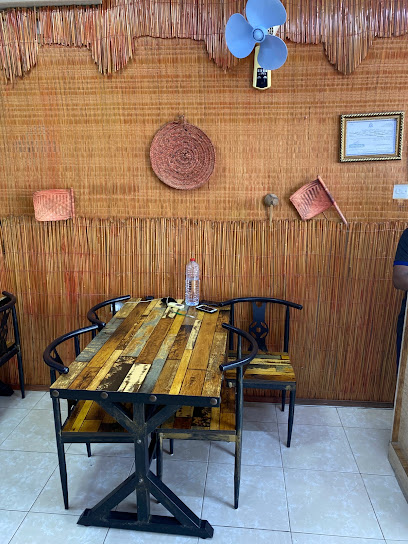
KHASAB CASTLE (Old Name: Wadi Qada Restaurant)
Experience the rich flavors and cultural heritage of Oman at Khasab Castle, a must-visit restaurant in Khasab offering traditional Omani cuisine.
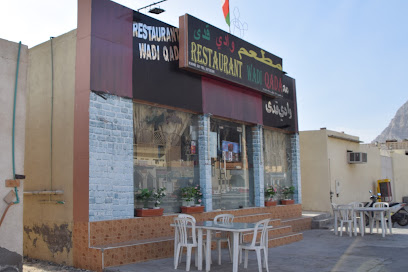
Fanr Musandam Turkish Restaurant
Savor the authentic Turkish flavors at Fanr Musandam Turkish Restaurant, a culinary gem in the heart of Khasab, Oman.
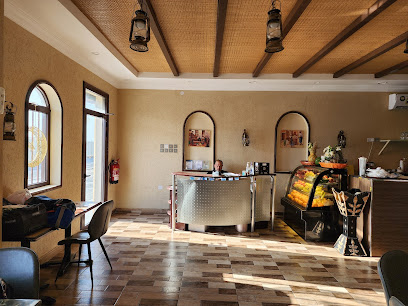
Sada musandam cafeteria
Discover Sada Musandam Cafeteria in Khasab, Oman – a fast food delight offering local and international flavors in a vibrant coastal setting.
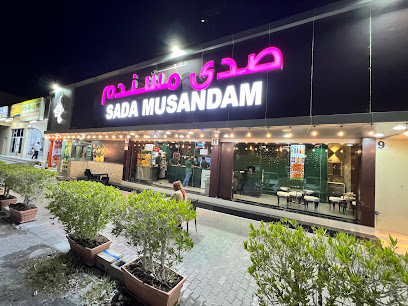
Bassa Beach Restaurant
Experience the best of Omani cuisine at Bassa Beach Restaurant, where delicious food meets stunning coastal views in Khasab.
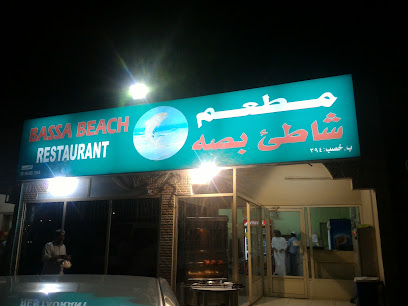
Al Asdaf Restaurant
Discover the authentic flavors of Oman at Al Asdaf Restaurant in Khasab, where traditional dishes meet warm hospitality.
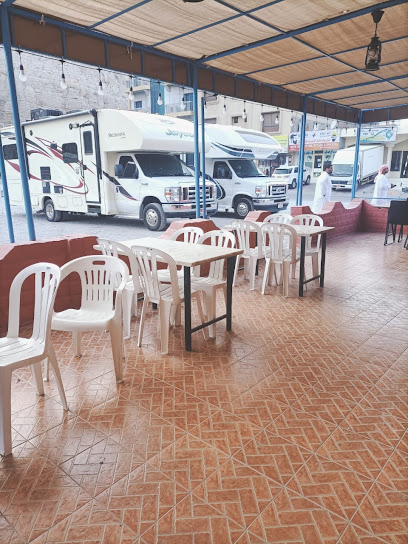
Bahar Bukha restaurant
Discover the authentic taste of Omani cuisine at Bahar Bukha Restaurant in Khasab, where traditional flavors meet warm hospitality.
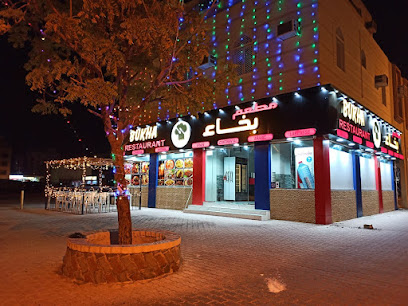
Classic burger house
Discover the ultimate burger experience at Classic Burger House, where tradition meets flavor in the heart of Khasab.
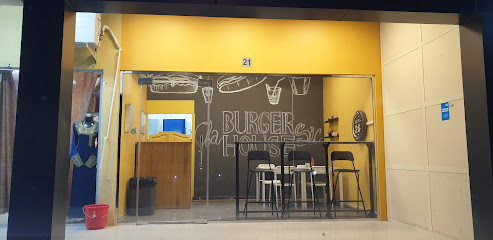
Darts Bar, Atana Hotel
Discover the lively Darts Bar at Atana Hotel in Khasab, Oman - a perfect blend of relaxation, entertainment, and stunning views.
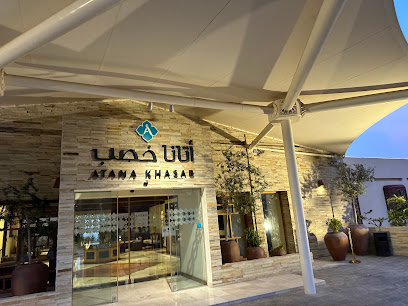
Nihmath Hotel
Discover the flavors of Khasab at Nihmath Hotel, where local and international cuisines meet in a delightful dining experience.

Musandam Restaurant
Discover the authentic taste of Omani cuisine at Musandam Restaurant in Khasab, where tradition meets flavor in a welcoming atmosphere.
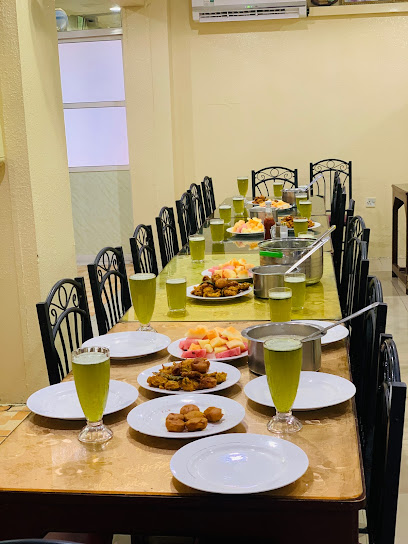
Al Mawra Restaurant
Experience the essence of Omani cuisine at Al Mawra Restaurant in Khasab, where fresh ingredients and traditional flavors combine for an unforgettable dining experience.
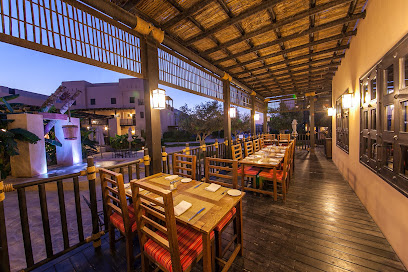
Local Phrases about Musandam Peninsula
-
- Helloمرحبا
[marhaba] - Goodbyeمع السلامة
[maa assalama] - Yesنعم
[naam] - Noلا
[laa] - Please/You're welcomeمن فضلك/عفوا
[min fadlik/afwan] - Thank youشكرا
[shukran] - Excuse me/Sorryعذرا
[adhraan] - How are you?كيف حالك؟
[kaif halik?] - Fine. And you?بخير. وأنت؟
[bikhair. wa ant?] - Do you speak English?هل تتحدث الإنجليزية؟
[hal tatahadath al ingliizia?] - I don't understandلا أفهم
[laa afham]
- Helloمرحبا
-
- I'd like to see the menu, pleaseأريد أن أرى القائمة، من فضلك
[urid an ara alqaima, min fadlik] - I don't eat meatأنا لا آكل اللحوم
[ana la akul allahm] - Cheers!في صحتك!
[fi sahtak!] - I would like to pay, pleaseأود أن أدفع، من فضلك
[awad an adfaa, min fadlik]
- I'd like to see the menu, pleaseأريد أن أرى القائمة، من فضلك
-
- Help!النجدة!
[alnajda!] - Go away!انصرف!
[ansarif!] - Call the Police!اتصل بالشرطة!
[atsil bialshurtah!] - Call a doctor!اتصل بالطبيب!
[atsil bialtabib!] - I'm lostلقد ضللت الطريق
[laqad dalalt altariq] - I'm illأنا مريض
[ana mareed]
- Help!النجدة!
-
- I'd like to buy...أود أن أشتري...
[awad an ashtari...] - I'm just lookingأنا فقط أتفرج
[ana faqat atfarij] - How much is it?بكم هذا؟
[bi kam hadha?] - That's too expensiveهذا غالي جدا
[hadha ghali jiddan] - Can you lower the price?هل يمكنك خفض السعر؟
[hal yumkinuk khaafid alsaaar?]
- I'd like to buy...أود أن أشتري...
-
- What time is it?كم الوقت؟
[kam alwaqt?] - It's one o'clockالساعة الواحدة
[alssaah alwahidah] - Half past (10)العاشرة والنصف
[alashirah walinisf] - Morningالصباح
[alsabah] - Afternoonالظهر
[aldhuhr] - Eveningالمساء
[almasa] - Yesterdayأمس
[ams] - Todayاليوم
[alyawm] - Tomorrowغدا
[ghadan] - 1واحد
[wahid] - 2اثنين
[ithnayn] - 3ثلاثة
[thalatha] - 4أربعة
[arbaaa] - 5خمسة
[khamsa] - 6ستة
[sitta] - 7سبعة
[sabaa] - 8ثمانية
[thamania] - 9تسعة
[tisaa] - 10عشرة
[ashara]
- What time is it?كم الوقت؟
-
- Where's a/the...?أين...؟
[ayn...?] - What's the address?ما هو العنوان؟
[maa huwa alunwan?] - Can you show me (on the map)?هل يمكنك أن تريني؟
[hal yumkinuk an trini?] - When's the next (bus)?متى القادمة؟
[mata alqadima?] - A ticket (to ....)تذكرة (إلى...)
[tadhkirah (ila...)]
- Where's a/the...?أين...؟
History of Musandam Peninsula
-
The Musandam Peninsula, often referred to as the 'Norway of Arabia' due to its rugged coastline and fjord-like inlets, was a significant point on ancient maritime trade routes. The Strait of Hormuz, which the peninsula overlooks, has been a key maritime passage connecting the Arabian Gulf with the Indian Ocean. Traders from Mesopotamia, Persia, and the Indian subcontinent passed through these waters, exchanging goods such as spices, textiles, and pearls.
-
In the 16th century, the Portuguese recognized the strategic importance of the Musandam Peninsula and established fortifications in the region. These forts served as protective outposts to control maritime trade routes and safeguard their interests in the Arabian Gulf. The remnants of these fortifications can still be found in places like Khasab, offering a glimpse into the colonial history of the peninsula.
-
During the 17th and 18th centuries, Oman emerged as a formidable maritime power under the leadership of the Al Bu Said dynasty. The Musandam Peninsula played a crucial role in this maritime dominance, serving as a base for Omani naval operations. The strategic location of Musandam allowed Oman to control the vital shipping lanes through the Strait of Hormuz, enhancing its influence over regional trade.
-
In the 19th and early 20th centuries, the British Empire established its influence over the Arabian Peninsula, including the Musandam region. The British sought to protect their maritime and colonial interests, signing treaties with local rulers. Musandam became part of the Trucial States, a group of sheikhdoms that had special treaty relations with Britain, leading to increased security and stability in the region.
-
The modern history of Musandam Peninsula began in 1971, when Oman, under Sultan Qaboos bin Said, unified its territories and embarked on a path of modernization. Musandam, with its strategic location, remained integral to Oman's national security and economic development. The government invested in infrastructure, including roads and ports, to enhance connectivity and promote tourism in the region.
-
The Shihuh tribe, indigenous to the Musandam Peninsula, has a rich cultural heritage that continues to influence the region. Known for their seafaring skills, the Shihuh have historically been engaged in fishing, boat building, and trading. Their unique customs, traditional dress, and distinct dialect contribute to the vibrant cultural tapestry of Musandam. Visitors can experience this heritage through local festivals, traditional music, and crafts.
Musandam Peninsula Essentials
-
Musandam Peninsula is located in the northernmost part of Oman. The nearest international airport is Dubai International Airport (DXB) in the UAE, approximately 150 kilometers away. From Dubai, you can drive or take a taxi to the Oman border and continue to Musandam. Another option is to fly into Muscat International Airport (MCT) and then take a domestic flight to Khasab Airport (KHS), the main airport in Musandam. There are also ferry services from Muscat to Khasab, offering a scenic coastal journey.
-
Musandam Peninsula can be explored by car, and renting a 4x4 is recommended due to the rugged terrain. Taxis are available in Khasab, but for more remote areas, a rental car is more convenient. Public buses and minibuses (known locally as 'baisa buses') operate within the region, connecting major towns and villages. Boat tours are popular for exploring the fjords and coastal areas, and can be arranged through local tour operators.
-
The official currency in Oman is the Omani Rial (OMR). Credit cards are accepted in most hotels, restaurants, and larger shops in Khasab, but it is advisable to carry cash for smaller establishments and rural areas. ATMs are available in Khasab, but it is wise to withdraw sufficient cash before venturing into more remote parts of the peninsula.
-
Musandam Peninsula is generally a safe destination for tourists. Crime rates are low, but it is always advisable to take standard precautions. Avoid walking alone at night in unfamiliar areas and keep an eye on your belongings in crowded places. There are no specific high-crime areas targeting tourists, but staying vigilant and aware of your surroundings is always recommended.
-
In case of emergency, dial 9999 for immediate assistance in Oman. Khasab has a local police station and medical facilities, including a hospital. It is recommended to have travel insurance that covers medical emergencies. For minor health issues, there are pharmacies in Khasab where you can purchase over-the-counter medications.
-
Fashion: Do dress modestly, especially in public places and religious sites. Avoid wearing revealing clothing. Religion: Do respect local customs and traditions. Always remove your shoes before entering mosques. Public Transport: Do be respectful and give up your seat to elderly passengers. Don't eat or drink on public transport. Greetings: Do greet people with a handshake, but note that some locals may prefer not to shake hands with the opposite gender. A slight bow of the head is also a sign of respect. Eating & Drinking: Do try local delicacies and accept food offerings graciously. Don't refuse hospitality, as it is considered impolite.
-
To experience Musandam Peninsula like a local, visit the traditional souks in Khasab where you can buy fresh produce and local handicrafts. Engage with locals, as they are often friendly and willing to share stories about their culture and history. Don't miss the dhow cruises which offer a unique way to explore the stunning fjords. For a more adventurous experience, consider going on a mountain safari to explore the rugged landscape and remote villages.
Trending Landmarks in Musandam Peninsula
Nearby Cities to Musandam Peninsula
-
Things To Do in Ras Al Khaimah
-
Things To Do in Dibba Al-Fujairah
-
Things To Do in Khor Fakkan
-
Things To Do in Umm Al Quwain
-
Things To Do in Fujairah
-
Things To Do in Ajman
-
Things To Do in Sharjah
-
Things To Do in Dubai
-
Things To Do in Sohar
-
Things To Do in Al Ain
-
Things To Do in Abu Dhabi
-
Things To Do in Rustaq
-
Things To Do in Ibri
-
Things To Do in Muscat
-
Things To Do in Bahla










